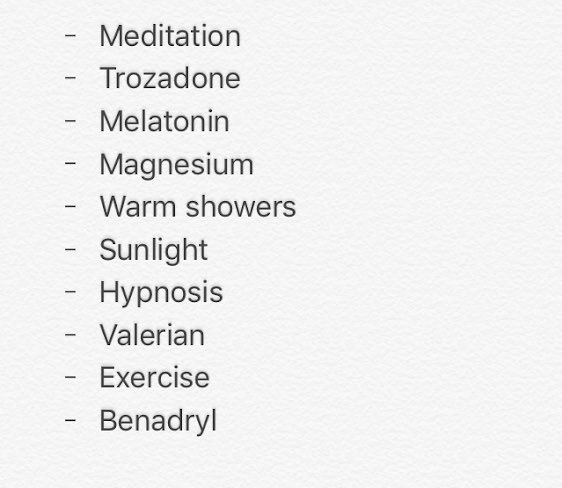I had insomnia for 10 weeks last year.
What most people don't know is that insomnia is largely a mind problem. It's a perception problem.
What do I mean by that?
Even after I stopped taking the medication, I continued to have sleep problems.
I thought the medication had possibly damaged my brain.
I wasn’t sure, but it was a lingering thought I carried with me.
I tried many other solutions.
Some worked.
Most didn’t.

He had spent over two decades working with insomnia patients, discovering patterns, and coming up with a treatment plan.
The whole book was basically a program for rewiring your perceptions.
1. They tend to be highly conscientious
2. They’re highly intelligent
A highly conscientious person will rethink about a certain image, word, or idea over and over in their head.
Over time, they’ll rewire their neural pathways, until their beliefs become a self-fulfilling prophecy.
That’s not to say only conscientious and intelligent people get insomnia.
What I’m saying is, they seem to get insomnia more easily and consistently.
Highly intelligent and conscientious people know how to create stress from nowhere.
That brings me to two of my favorite highly intelligent, conscientious, and stressed out people:
Elon Musk and Tim Ferris
It’s unfortunate because after a couple of years, he’s gonna start having memory problems.
(Ambien seems to damage the regions associated with memory)
He’s such an intense, optimization-seeking individual that it’s quite easy for his mind to worry about any trivial problem.
People envy his drive and success, but they don’t see how easily his mind can create a prison.
That tends to limit the number of choices you can make.
It also means you’ll take any deviation from perfection as a big problem.
He talks about how after three days, he didn’t have morning fatigue anymore.
Tim then goes on to attribute it to the myristic acid.
I’m skeptical the myristic acid actually did anything.
0. It’s easy for Tim Ferris to believe if anything is even slightly wrong, shit will hit the fan
1. Tim probably believes there’s something suboptimal about his body, because he compares himself to every great person to have ever lived.
Tim’s incredibly strong belief in optimization likely made his brain rewire itself.
It’s why it took 3 days to work instead of 1.
I wouldn’t be surprised if Tim later had insomnia.
So the search will continue for Tim.
He’ll look for a slightly better pillow.
A slightly better bed.
Perfectly controlled room-temperature air.
I think it’d do him a lot of good.
And not just Tim. But Elon Musk too.
You’d be surprised at how many problems thinking can make for you.






